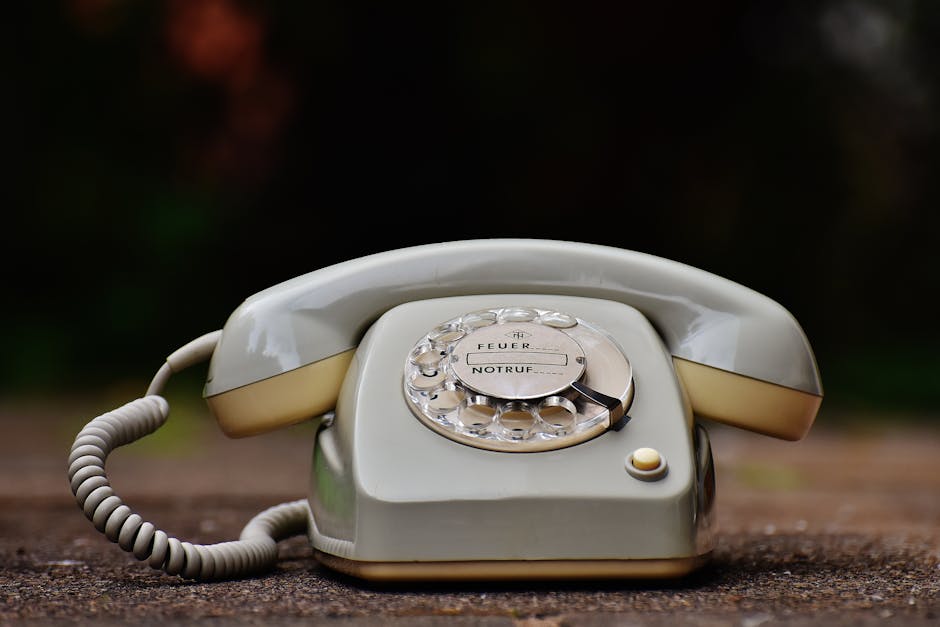Emergency Contacts in Japan: Your Essential Prep Guide for a Safe Trip

Emergency Contacts in Japan: Your Essential Prep Guide for a Safe Trip
Japan, the Land of the Rising Sun, captivates with its stunning landscapes, vibrant culture, and delectable cuisine. But beneath the serene beauty lies a reality – emergencies can happen anywhere. I learned this firsthand during my first solo trip there. While I was fortunate enough to avoid any serious incidents, the sheer anxiety of not knowing who to call or where to turn in an urgent situation motivated me to create this guide. Think of it as a friendly hand, helping you prepare for the unexpected so you can fully enjoy your Japanese adventure.
Why Prepping Emergency Contacts is Crucial in Japan

Imagine this: you're exploring a bustling Tokyo street, lost and disoriented. Or perhaps you experience a sudden medical issue while hiking in the Japanese Alps. In these moments, having readily available emergency contacts can be a lifesaver. Language barriers, unfamiliar customs, and the sheer scale of Japan can make navigating emergencies incredibly stressful without proper preparation.
This isn't about being pessimistic; it's about being proactive. Knowing who to contact in different scenarios can significantly reduce stress and improve your chances of a positive outcome. It's like having a safety net, giving you peace of mind to explore with confidence.
Essential Emergency Numbers to Program into Your Phone

Before you even pack your bags, take a few minutes to program these essential emergency numbers into your phone. Trust me, having them at your fingertips can make all the difference.
- 110: The general police emergency number. Use this to report crimes, accidents involving injuries, or any situation where you need immediate police assistance.
- 119: The fire and ambulance emergency number. This is your go-to number for fires, medical emergencies requiring an ambulance, or any life-threatening situation.
- #9110: This is a special number connecting you to the police for non-emergency situations, such as lost property or minor accidents without injuries.
Important Tip: While many operators speak some English, it's helpful to have a basic understanding of Japanese phrases like "Kyukyu desu!" (Emergency!) and "Tasuke te!" (Help!). You can also use translation apps on your phone to communicate effectively.
Your Embassy or Consulate: Your First Line of Support

Your country's embassy or consulate in Japan is a vital resource for citizens traveling abroad. They can provide assistance with lost passports, legal issues, medical emergencies, and other serious situations.
Before you leave, find the contact information for your embassy or consulate closest to your travel itinerary. Keep this information readily accessible – in your phone, in your travel documents, and even written down in a secure place.
Here's what your embassy or consulate can typically do:
- Issue emergency passports or travel documents if yours are lost or stolen.
- Provide guidance on legal matters and connect you with local lawyers.
- Offer assistance in contacting your family in your home country.
- Provide information on local medical facilities and help you communicate with doctors.
- Advocate on your behalf if you are arrested or detained.
Important Note: Embassies and consulates can offer support and guidance, but they cannot directly intervene in legal matters or provide financial assistance. They are there to ensure you are treated fairly under Japanese law and to help you navigate challenging situations.
Family and Friends Back Home: Building Your Support Network

Don't underestimate the importance of having a strong support network back home. Share your itinerary with a trusted family member or friend and provide them with copies of your important documents, such as your passport and travel insurance details.
Here are some things you can do to keep your support network informed:
- Share your itinerary: Let them know where you'll be and when.
- Provide emergency contact information: Give them the numbers for your embassy/consulate, travel insurance provider, and any local contacts you might have.
- Establish a regular check-in schedule: Decide how often you'll check in and through what method (text, email, phone call).
- Discuss potential emergency scenarios: Talk about what they should do if they can't reach you or if you need assistance from afar.
Having someone back home who is aware of your travel plans and can act as a point of contact in an emergency can provide immense peace of mind.
Travel Insurance: Your Financial Safety Net

Travel insurance is an absolute must for any trip to Japan. Medical costs in Japan can be very high, and travel insurance can protect you from unexpected expenses related to medical emergencies, accidents, lost luggage, and trip cancellations.
When choosing travel insurance, consider these factors:
- Medical coverage: Ensure the policy covers medical expenses, including hospitalization, surgery, and medication.
- Emergency evacuation: Check if the policy covers emergency medical evacuation to your home country or a nearby country with better medical facilities.
- Trip cancellation/interruption: Make sure the policy covers trip cancellations or interruptions due to unforeseen circumstances, such as illness, injury, or natural disasters.
- Lost luggage: Check if the policy covers lost, stolen, or damaged luggage.
- 24/7 assistance: Choose a policy that offers 24/7 assistance in English.
Pro Tip: Keep a copy of your travel insurance policy with you at all times, both in digital and printed format. Know your policy number and the contact information for your insurance provider.
Local Contacts: Building Bridges in Japan

While you're traveling in Japan, consider connecting with local contacts. This could be through language exchange partners, online forums, or even people you meet at your accommodation. Having a local contact can be incredibly helpful in case of an emergency.
Local contacts can assist you with:
- Language assistance: They can help you communicate with emergency services or medical professionals.
- Navigation: They can provide directions or help you navigate the local transportation system.
- Cultural understanding: They can offer insights into local customs and practices.
- Emotional support: They can provide a friendly ear and offer emotional support during a difficult time.
Important Note: Exercise caution when connecting with strangers online. Meet in public places and be mindful of your personal safety.
Understanding Japanese Emergency Procedures

Knowing how emergency services operate in Japan can help you respond effectively in a crisis. Here's a brief overview:
- Calling Emergency Services: When you call 110 or 119, be prepared to provide your location, the nature of the emergency, and the number of people involved. Speak clearly and calmly.
- Ambulance Services: Ambulances in Japan are well-equipped and staffed by trained paramedics. They will transport you to the nearest appropriate hospital.
- Police Assistance: Japanese police are generally helpful and professional. They can assist you with reporting crimes, filing accident reports, and providing guidance on legal matters.
- Earthquakes: Japan is prone to earthquakes. Familiarize yourself with earthquake safety procedures. During an earthquake, stay calm, find a safe place to take cover, and follow the instructions of local authorities.
Earthquake Preparedness:
Since Japan experiences frequent earthquakes, it's wise to be prepared. Here's what I personally do:
- Download a Earthquake Alert App: There are free apps that send alerts before earthquakes hit, giving you precious seconds to prepare.
- Locate Emergency Exits: Always identify the emergency exits in your hotel, train, or any building you're in.
- Learn Basic Japanese Earthquake Phrases: Knowing simple phrases like "Jishin da!" (Earthquake!) can be helpful.
Key Phrases for Emergencies in Japanese

While many Japanese people have some English proficiency, especially in tourist areas, knowing a few basic Japanese phrases can be invaluable in an emergency. Here are some useful phrases to learn:
- Tasuke te! (Help!)
- Kyukyu desu! (Emergency!)
- Isha o yonde kudasai. (Please call a doctor.)
- Keisatsu o yonde kudasai. (Please call the police.)
- Kaji desu! (Fire!)
- Byoin wa doko desu ka? (Where is the hospital?)
- Wakarimasen. (I don't understand.)
- Eigo ga hanasemasu ka? (Do you speak English?)
Pro Tip: Download a translation app on your phone that works offline. This can be a lifesaver if you don't have access to Wi-Fi or mobile data.
Creating Your Personal Emergency Contact List

Now that you have a better understanding of emergency contacts and procedures in Japan, it's time to create your personal emergency contact list. This list should include all the essential numbers and information you need in case of an emergency.
Here's a template you can use:
Personal Emergency Contact List - Japan
- Your Name:
- Passport Number:
- Blood Type (if known):
- Allergies/Medical Conditions:
- Emergency Contact in Home Country:
- Name:
- Phone Number:
- Email Address:
- Embassy/Consulate:
- Name:
- Phone Number:
- Address:
- Travel Insurance Provider:
- Company Name:
- Policy Number:
- 24/7 Assistance Number:
- Local Contacts (if any):
- Name:
- Phone Number:
- Essential Emergency Numbers:
- Police: 110
- Fire/Ambulance: 119
- Non-Emergency Police: #9110
Keep this list readily accessible – in your phone, in your travel documents, and even written down in a secure place. Share a copy with your emergency contact in your home country.
Final Thoughts: Prioritizing Safety for a Memorable Trip

Traveling to Japan is an incredible experience. By taking the time to prepare for potential emergencies, you can significantly reduce stress and improve your chances of a safe and enjoyable trip. Remember, being prepared is not about being fearful; it's about being responsible and empowered to handle whatever challenges may come your way.
I hope this guide has been helpful. Now go out there and explore the wonders of Japan with confidence and peace of mind! Have a fantastic trip!
Post a Comment